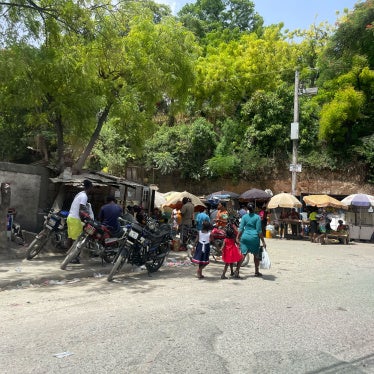It’s the Americas’ largest reunion. Happening every three years, the Summit of the Americas brings together the heads-of-state of the region to talk about pressing concerns. Over the weekend in Cartagena, Colombia, the theme will be “Connecting the Americas: Partners for Prosperity,” but some of the liveliest debates are likely to focus on discussions around decriminalization of personal drug use. Proponents of the plan suggest it will decrease the high levels of violence in some of the countries in the region.
A lot of important issues didn’t make the agenda. This is reasonable. It is a two-day summit to address the most-pressing concerns of the region in a room filled with dozens of presidents and prime ministers. Can you imagine? Reaching even small conclusions is surely a challenge. But, in a year in which violence in the region will be at the top of all discussions, it’s telling that once again another type of violence that may affect as much as 25 percent of the population hasn’t made the cut.
Gender-based violence plagues countries in the region, including Colombia, the host, as well as the United States, which plans to send almost 700 people in its delegation. This type of violence even permeates the communities in and around the conference center where the summit will be held. Several weeks ago, I was in Cartagena speaking with women who have suffered unspeakable acts of violence mere miles from where the region’s heads of state will gather in lavish style.
While the violence against women and girls in their homes does not on its face seem to have the same destabilizing effect on democracies, it would be wrong for governments to think it’s not an issue worthy of discussion at these types of high-level regional gatherings.
The World Bank has found that gender-based violence has a negative economic impact on countries in the region, limiting women’s contributions to social and economic development. The result can be a massive drain on economies in the Americas. The World Health Organization, summarizing various studies, found that violence against women and girls accounts for a 1.6 percent loss of GDP in Nicaragua and a 2 percent loss in Chile. It costs the US almost $13 billion annually.
Other studies have found that gender-based violence is a major cause of ill health among women and girls, from complications during pregnancy to depression to physical disability. This health impact acts, according to the World Bank, as “an impediment to the accumulation of human capital.” In other words, it prevents many women and girls in the Americas from investing in their own development, through education or other means, preventing them from better participating in the economy. The take away: gender-based violence prevents some poor women in the Americas from lifting themselves out of poverty.
The World Bank also has identified gender-based violence as a major factor in the inter-generational transmission of violence from parents to children. In a region where so many countries have been experiencing huge problems with violence, ending the cycle of violence in the home should be a priority.
The 2009 summit focused on promoting human prosperity, along with energy security and environmental sustainability. Despite the clear economic implications of violence against women and girls, only passing mention was made to this issue in the summit’s final declaration of commitment by participating states. Governments agreed to strengthen mechanisms for the advancement of women, which included following up on commitments these governments had made elsewhere to prevent, punish, and eradicate violence against women.
This is not exactly a resounding commitment to end gender-based violence, but is at least a mention. What it fails to recognize is the threat that this violence behavior poses to the broader commitments the countries have made to improving health, education and labor opportunities.
Governments in Latin America and the Caribbean have begun to address gender-based violence in communities, but it’s often reserved for specialized ministries, offices within the executive, or programs. There’s rarely an instance in which top leaders fret over the violence suffered by millions and millions of women and girls the way they fret over the economy and the types of violence more visible to the general public.
But, what these world leaders must learn, sooner or later, is that they won’t be able to address their other problems without addressing this one. Fulfilling the right of women and girls to live free of violence is fundamental to sustaining the prosperity and security of the region.
So why is gender-based violence never at the top of high-level meetings like Cartagena?
Perhaps it’s because there are so few female heads-of-state sitting at the table (in this case three presidents, two prime ministers), or because gender-based violence continues to be seen as a private, domestic problem for individual countries to deal with, or because, frankly, there are always more pressing, immediate concerns than the systemic, chronic violence faced by women.
But, whatever the reason, with higher estimates suggesting that as many as one in two women in the region will suffer gender-based violence in their lifetime -- this is a regional problem and should be a priority when these leaders meet again.









